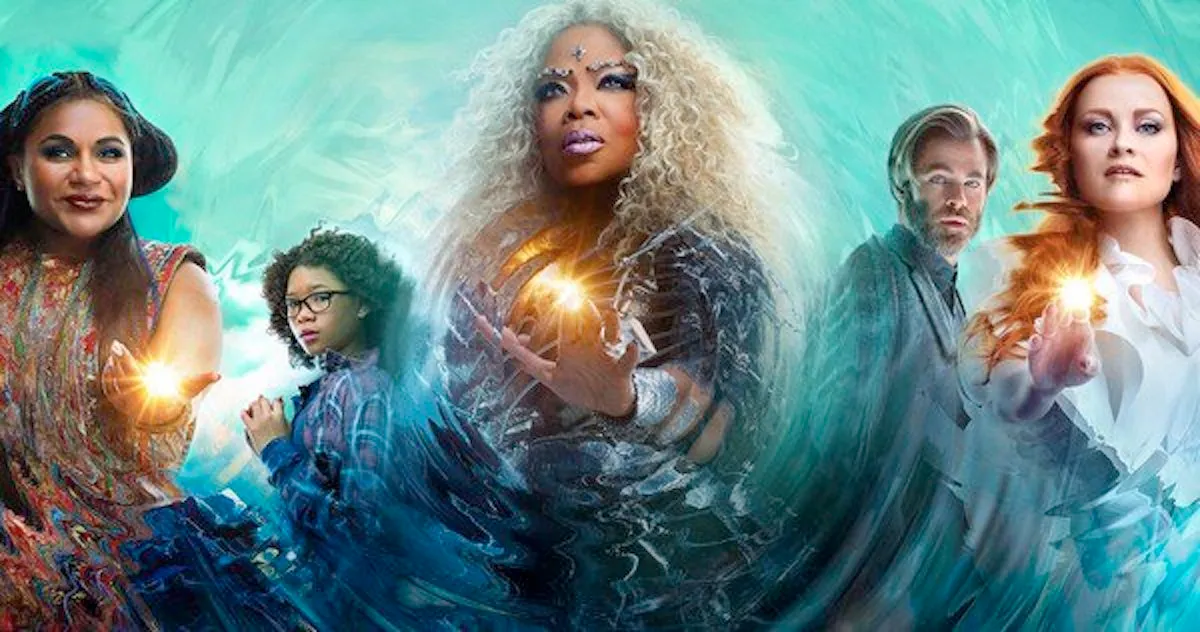It was a dark and stormy night when I finally watched Ava DuVernay’s adaptation of A Wrinkle in Time. I had read the book years before, only enough so I remembered the plot vaguely, so I was coming to it without the expectations of what an adaptation should be like. Mostly, I was excited for the cast and to actually see if I agreed with the critical consensus from the film’s release nearly a year ago.
As it turns out, I wildly disagreed with the critics. I found myself crying at several key parts of the film, and tearing up throughout; I’m talking ugly crying, too, not cute single tears. The film captured my heart in a way I did not fully expect, thanks in no small part to DuVernay’s direction and the message of the script.
I understand that changes were made to the book in the process of adaptation, and I will not fault any fans for being upset that the twins were cut, or that Aunt Beast was missing. We all approach books and adaptations differently, and if I had read the book more recently, I might have been equally as upset that the third act was changed so dramatically. There have been books that I’ve adored whose adaptations have left me angered due to changes, but this was not one of them.
I love hope in my stories. Sure, there are times for horror, dystopia, and death, but the trend through most of my favorite films is that hope endures even when it seems to be gone. It’s the reason why my favorite Star Wars films are a back-to-back showing of Rogue One and A New Hope. Hopeful narratives, especially in a time that is not particularly hopeful, matter strongly to me.
I also love “power of love” stories. Blame it on being part of the Harry Potter generation and rewatching Return of the Jedi once a week for at least six months when I was six, but heroes who show compassion and love in the face of evil always make my heart sing. So, when Meg saves the day not through violence or some sort of high powered action scene, but rather, through loving so much that she becomes a warrior, a figure of Light … I wept into my popcorn.
Meg means more to me now than she did when I first read the book. Even though I’m older than her, I relate to her now in ways I couldn’t quite as a third grader when I first read the book. She’s not a perfect hero, but she grows and learns to embrace her flaws throughout the film. Her weaknesses aren’t an obstacle to overcome, but rather a source of strength. She is loved with her flaws, not despite them, and that is what saves Charles Wallace and pushes back the IT in the end.
I always love heroines who are heroes first, and female characters second. Too often, heroines are marked by either gendered trauma, or are constantly saying things like “oh, I learned to be tough from my five brothers,” or are told they cannot do something because they’re a girl, and then their whole arc is proving people wrong. Meg simply exists as a hero. She doubts herself, but no one tells her that she’s a girl so she can’t save the day. The IT mocks her for being a single person who wants to save the day, but Meg is allowed to exist beyond being just held down by expectations surrounding young women.
Above all else, the film holds a powerful message about the power of letting the light in. Mrs. Who quotes Rumi, saying, “The wound is the place where the Light enters you.” That quote defines Meg’s journey. She has been hurt, but rather than let the darkness take her over, she chooses to let in the Light. She chooses to embrace love and hope. It is a powerful sentiment not only for the younger audiences watching the film, but for older audiences who need a gentle reminder to not let our pasts cause us to lose hope.
Towards the end of the film, Mrs. Who then says, “Tomorrow, there’ll be more of us,” quoting Lin-Manuel Miranda’s Hamilton. Meg has become a warrior of Light on Earth, pushing back the IT and giving the planet a chance. She inspires, and we should take inspiration from the message of the film. DuVernay, who recently guest edited an issue of TIME on optimism, clearly believes strongly in this message.
We, too, should let the Light in, and be warriors.
(image: Disney)
Want more stories like this? Become a subscriber and support the site!
—The Mary Sue has a strict comment policy that forbids, but is not limited to, personal insults toward anyone, hate speech, and trolling.—









Published: Feb 8, 2019 01:27 pm